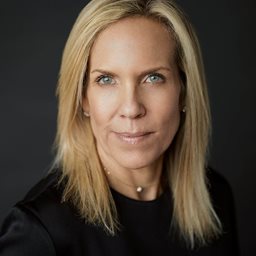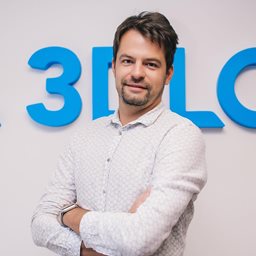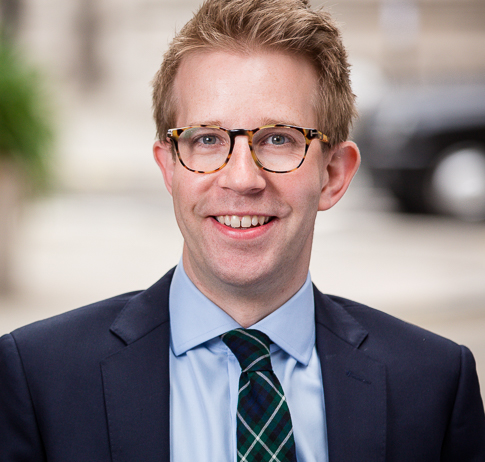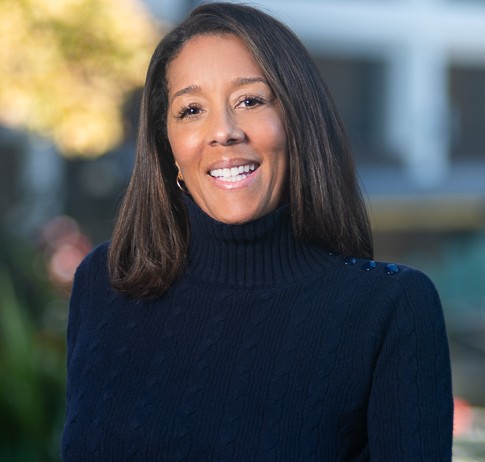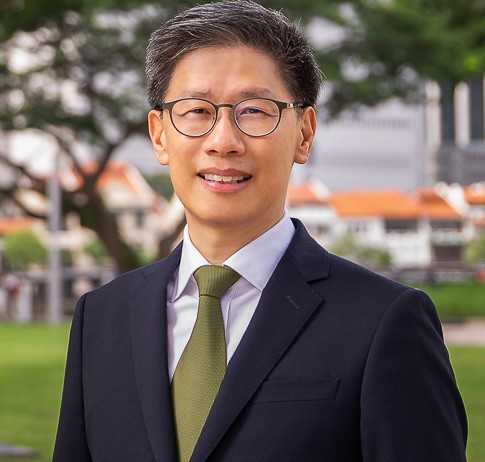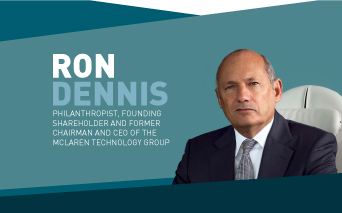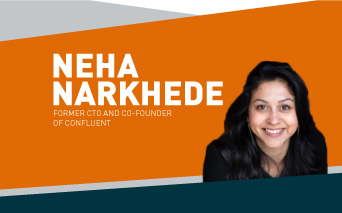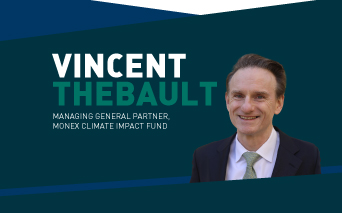Podcast
3DLOOK co-founders, Whitney Cathcart and Vadim Rogovskiy, talk technology, innovation and sustainable fashion
28 May 2021 | 28 minute listen
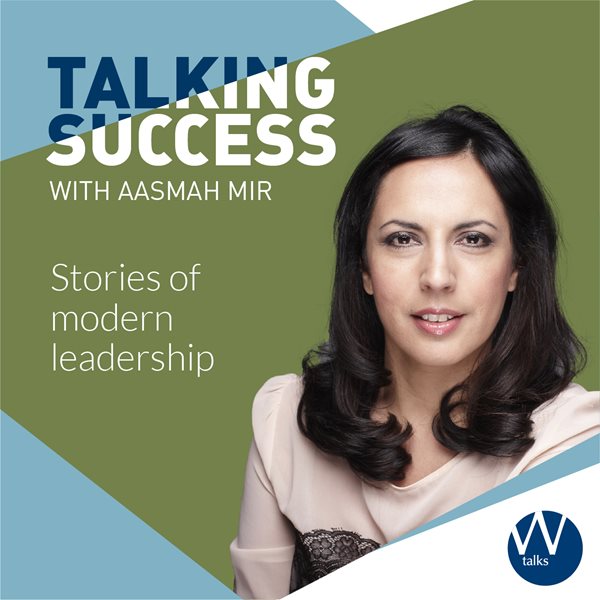
Episode 3 of Talking Success with Aasmah Mir
Aasmah talks to Whitney Cathcart and Vadim Rogovskiy about how they came together to found 3DLOOK*, what they admire in one another and how technology and AI can transform the fashion industry for the better. To hear more stories of success, click here.
Podcast host: Aasmah Mir
Aasmah Mir is an award winning broadcaster and journalist. She currently co-hosts the Breakfast Show on Times Radio and writes a regular column for The Times.
Guest: Whitney Cathcart, Chief Strategy Officer
Whitney has more than two decades of executive leadership experience at some of America’s leading branded apparel, celebrity licensing and private-label manufacturing companies. Prior to co-founding 3DLOOK*, Cathcart served as a retail investment executive at Bay Angels, a Bay Area angel investment group, and founded Cathcart Technologies, which provided consulting services to early stage companies developing transformational solutions using 3D, machine learning, computer vision and extended reality technologies. She previously led executive level merchandising, business development, and sales efforts for several major fashion and apparel companies. Cathcart holds a BA from Ithaca College and a certification from MIT’s Sloan School of Management in Artificial Intelligence: Implications for Business Strategy.
Guest: Vadim Rogovskiy, CEO
Prior to launching 3DLOOK*, Rogovskiy founded digital advertising platform Clickburner, later renamed Clickky, which was partially acquired by a private equity fund, and AdCenter, which was acquired by VertaMedia. A serial technology entrepreneur, he launched his first company at age 18 and then ran a web design studio and a gaming company before turning his focus to the mobile adtech industry. Rogovskiy is also an angel investor and partner at pre-seed fund WannaBiz, which has made 12 investments to date in tech startups, an advisor to early-stage companies and a mentor to teams at 500 Startups and a Forbes “30 Under 30” alumni.
3DLOOK is the global leader in AI-first mobile body measuring and fit solutions. View the 3DLOOK website here.
Note: We have provided a transcript of the discussion in this podcast if you are unable to listen to the audio version. This transcript is generated using a combination of speech recognition software and human transcribers and may contain errors.
Aasmah Mir (00:02) Welcome to ‘Talking success’ with Aasmah Mir in partnership with Withers, the international law firm.
Mark Cheng (00:10) If you really believe in the company, if you believe in the mission, if you believe in the market, and if you believe in the entrepreneurs who are driving that, then you know, don’t give up.
Margaret Heffernan (00:20) What success I’ve had is only useful to the degree that I use what it’s given me to help other people.
Dr Jay Mei (00:28) In our industry actually, our business, the reality is that we fail more often than we succeed.
Aasmah Mir (00:38) I’m Aasmah Mir and in this series I get to chat to a whole range of successful people – CEOs, entrepreneurs and leaders in their field. What I want from these conversations is to identify and unpack the crunch points in their careers and their lives. Those crucial moments where a decision or a reaction made all the difference.
Vadim Rogovskiy (01:00) Consensus is not the most important things we’re looking for, but Whitney and I, we always would choose to take a risk, but in order to try to get much bigger rewards.
Aasmah Mir (01:10) In this episode, I’m speaking with Vadim Rogovski and Whitney Cathcart, two of the co-founders of 3DLOOK, alongside Alex Arapov and Ivan Makiev. Founded in 2016, the company provides unique body scanning technology through which users can get accurate body measurements using only the camera on their phones, allowing them to see how clothes will fit them and reducing the likelihood of returns. Vadim is CEO while Whitney is Chief Strategy Officer. Vadim and Whitney, thank you so much for joining me.
Vadim Rogovskiy (01:45) Thanks for having us here.
Whitney Cathcart (01:47) Great to be here today. Thanks for having us.
Aasmah Mir (01:49) Now I’m going to start off with a small question, but a big thought really. What is the one trait that each of you values the most about the other in business? Whitney, let me start with you.
Whitney Cathcart (02:03) So for me, that’s an easy one because what I have seen in Vadim from day one is tenacity and I think, as a CEO of a fast growing startup, tenacity is a quality that somebody needs to kind of continue to forge forward and be somewhat even-keeled in kind of the tornado of that, you know, building a technology startup, it’s just part of your life, so that tenacity is something I’ve always admired in Vadim.
Aasmah Mir (02:37) Vadim, what about you? What is the one trait in Whitney that you most value about her when it comes to business?
Vadim Rogovskiy (02:44) I would say it’s easy one. It’s energy. Yeah, she’s really one of the most energetic and hardworking people I have ever worked with. It’s really incredible how many things Whitney can get done in a certain period of time. It’s impossible for the vast majority of people that I know.
Aasmah Mir (03:04) Well, Whitney, how did you end up working with Vadim?
Whitney Cathcart (03:07) So I had actually made the leap from kind of the business side of fashion out of it, driven really by lack of innovation I saw there, and had spent a couple of years running a consulting firm of which I was doing a lot of research on immersive technologies, AI, and I was looking at the tech and there have been an article in Venture Beat and it highlighted 3DLOOK. So I got in touch with 3DLOOK and they were, you know, very small. I can’t remember, I think, you know, maybe four or five people and we met. And what I really loved is that he had a technology, which by the way was like barely working back then, but it was a mobile first technology, so that like mobile first mindset was really important to me. And the other thing of it was like, to me, it was a data play and it was so obvious that if you could actually build this technology and it could be accurate that the opportunity there to really make a huge impact on the fashion industry was a billion dollar opportunity.
(04:19) So we started working together and that was kind of it. It was very fast. It was like speed dating.
Aasmah Mir (04:27) Now let’s talk a little bit more about the business. Vadim, but let me start with you. You started 3DLOOK in 2016, but how would you say technological advances over the last five years shaped the success of your business?
Vadim Rogovskiy (04:42) Alex and I started the company in 2016. Really when we started, we already knew that a lot of companies tried to solve the problem and they didn’t succeed, mostly because it was the wrong time, too early, the technology was not there, consumers were not there, a lot of reasons. But we felt that the momentum is somewhere near because we saw more and more scientific papers emerging. We saw more and more advancements in terms of GPU servers, cloud infrastructures. For all these factors that come together into an inflection point when we say that it’s the right time. So we felt this and we were right. And now, of course, many companies who try to enter this space, they see us as an example, as a playbook, so for them it’s easier and it’s good that this space is getting more crowded. So it’s really exciting.
Aasmah Mir (05:37) Where did you get the idea from?
Vadim Rogovskiy (05:40) I’ve had two companies in ad tech, online, mobile marketing, before that. And I started to study from 2015, I started to be excited about this first wave of augmented reality. We saw with people-created entertainment, like face filters, but we didn’t see anything more practical. And also considering my background in ad tech, I was always looking at ways to collect more data and then to use it because advertising is built on top of data. In a few months, we arrived at this idea, of this concept, of allowing everyone with a smartphone to create her digital passport, and by digital passport we mean all the body data, measurements, preferred sizes, size, shape, your avatar in general, associated with your smart phone that you can use to buy anything. So that’s the big vision.
Aasmah Mir (06:34) And Whitney, you’re Chief Strategy Officer. I was asking Vadim about the last five years, but what about the next five years? How are you expecting tech to change in the next five years?
Whitney Cathcart (06:44) Yeah, that’s a great question. So the interesting thing about the apparel industry, which by the way is a $3 trillion industry, it’s also kind of one of the slowest industries to innovate and kind of adopt technologies, but this concept of show me things that are relevant to me, that are relevant to what I’m doing today and who I’m having dinner with, and what concert I’m attending next weekend, or do I have a business trip next week? Those types of things are going to begin to infiltrate our lives. Not in a negative way actually, but in a way that almost enables us to have more time to do the things that we love. And the advancements in technologies, in 3d in particular, are going to create experiences for us that are so much more personal over the next five to 10 years, and the way that we’re going to be shopping is going to be very different and baked in, kind of how are you bringing all these mixed realities together between your digital world and your physical world? So it’s going to be, I think, quite amazing.
Aasmah Mir (07:47) I’m sure you’re right. Vadim, you founded three companies, you’re an investor, you’re a mentor, you’re an advisor. You’re a busy guy. I mean, is there a defining moment, was there a time, a moment in your life, that made you realise that this is the direction that you should go in?
Vadim Rogovskiy (08:08) Well really back in university, when I started to, I worked for several companies when I was still studying at the same time. I started to actually work on some, my first entrepreneurial and small projects was an e-commerce store, web design studio, game studio, one by one. I treated that as a game, as a hobby, in the beginning, then I started to see some money, but then I found advertising and it was my first passion. Before that I was in search, I spent six months per project, but then it was my first passion. So now it’s my second passion. I think it’s only the beginning.
Aasmah Mir (08:50) And what about risk and where that comes into your decisions and your relationship? Would you say that you both have the same appetite for risk, Whitney?
Whitney Cathcart (09:02) Well, I’ve never really been one to play it safe. I had a boss, I don’t know, 10 or so years ago that once said to me, you have this amazing ability to operate in chaos. In fact, you do better operating in chaos. If I look back at my career and the different companies I’ve been with, I’ve had cushy kind of corporate roles. And for me, it’s always been around about kind of peeking around that corner. For me, I think moving over to 3DLOOK and flipping sides in fashion from kind of the business side of being in the product side to actually being in the technology side, that was, what many people thought was an enormous risk for me to take at the back part of my career. I’m not a 20 year old founder, but for me it was an easy choice because, if I looked out into the future and I just kind of assessed, if I stay where I am, which is comfortable and pays me a lot of money and I have great people that I work with, that I work for, and that work for me, versus doing something that was actually going to be able to drive an industry that I loved into the future.
(10:17) It was kind of an obvious choice to take that risk. And it was definitely rolling the dice. But for me, I would say if I look back on a 30 year career, this role at 3DLOOK and working with Vadim and Alex and Ivan, have certainly been the most rewarding four plus years, of my entire career. And I think a lot of it is because there’s so much involved, there’s so much risk involved in building a startup. I mean, you can’t ever have this sense that you’ve succeeded. There’s so many highs in a day where you feel like, gosh, we’ve got this and then there’s lows where you’re thinking, oh my gosh, we’re like, how are we going to pay people tomorrow? And there’s risk involved with that. But I believe, and I’ve tried to teach my children this, that if you’re living in a comfortable life, you’re not really learning and life is about learning and taking challenges and that involves risk taking. And certain people are more comfortable with it than others. For me, I’ve always been a risk taker and the choices I’ve made don’t always work out. And I think that’s part of taking risk is, is the failure that often comes with it.
Aasmah Mir (11:24) Vadim, what about you then, because the kind of accepted wisdom is that for a successful business partnership, you know, one has to be into taking risks and one needs to be risk averse. So if, if Whitney is the risk taker, does that mean that you’re quite a safe guy?
Vadim Rogovskiy (11:41) In this couple, it doesn’t work like that. We both are risk takers but one of the reasons why we are successful, that we have four founders in our team and other two people are technical and totally not risk takers at all. And it’s good because if we all are in agreement, it means that you’re going to have this higher chances to succeed. But it’s not always the case because we often don’t have time to find the consensus. And there is the interesting notion that consensus doesn’t work for early stage companies. And maybe earlier, we had more time to discuss it among the four of us and come up with a consensus. And it was hard. Sometimes it took so much time. Now a consensus is not the most important thing we’re looking for, but Whitney and I, we always would choose to take a risk, but in order to try to get the much bigger rewards.
Aasmah Mir (12:42) Whitney, that’s really fortunate, isn’t it? It’s really fortunate that the two of you are pretty much… you seem to have the same kind of personalities, but, you know, business personalities and characters as well, because, you know, if you don’t then clearly that, you know, that can be a problem.
Whitney Cathcart (12:57) You know, we don’t always agree. I think one area that we’re very different is that Vadim tends to make decisions quickly and I tend to take a little bit longer and think about things. And I don’t know if that’s because I’m decades older or I’ve had more experience in business or I’m a woman, and maybe it’s combination of all of those things. It doesn’t always work. Sometimes I wish I was quicker. I tend to be probably a little more analytical and kind of weighing the pros and cons. I think that that relationship, the difference in us there actually works really well for us because he forces me to think a little bit faster. And I think sometimes I force him to reassess things. And even though in the heat of the moment, it may be a yes/no, I think we both tend to come around and look at… it’s almost like empathetic thinking and I think empathy actually is very important quality in very successful people, is that ability to kind of look at it from the other person’s shoes, but that quality in us, that difference, actually works really well for us. So yes, we have the same kind of energy. We both have a lot of chutzpah. We both are entirely passionate about what we’re building. I think we both love the chaos.
Aasmah Mir (14:23) That’s good to hear. Let’s talk a bit about success because success means different things to different people. And I wonder for the two of you individually, is there a period or a time, a moment in your career where you have felt your most successful?
Vadim Rogovskiy (14:40) Well, there were several of them so, well when we raised our recent investment round, which was $6.5 million from three very reputable well-known VCs, it’s validation, first of all, that we are doing something investible, something that has very high chances to become really big and successful. And it was a great moment. Another moment was when I sold part of my shares in a previous company to do a venture capital fund. I’ve got a lot of opportunities then to invest in other startups and subsequently to launch 3DLOOK. So it was another moment that was an important milestone for me.
Aasmah Mir (15:22) What about you, Whitney? You’ve had a bit of time to think about it, at what point in your long career have you felt most successful?
Whitney Cathcart (15:29) Success is to me a really funny word because, what does success mean? I grew revenue. I’ve beat projections. I have happy teens. You know, when I think about success for me, I kind of flip it and I think about, well, what drives me, right, because success can be so many things and ultimately what really drives me is actually my children, and leading by example. So if I do well in business, if I help companies do better, if I can build things that people love and along the way I hit milestones, I put food on the table for my family. I can take them on a vacation. That to me is, I guess, the thing that drives me.
Aasmah Mir (16:19) Let’s talk about points in your respective careers where things perhaps haven’t gone to plan and you have learned something from that experience which you’ve applied to subsequent years, subsequent careers. What would you say that are the two or three key lessons that you’ve learned? Vadim? What about you? Was there something that you felt very strongly about that you perhaps had to ditch or to compromise on because you realised that it was a mistake? Are there any particular learnings?
Vadim Rogovskiy (16:54) Of course, I can mention a lot of them, but, in my first company we’d been growing a lot organically. I was hiring people, it was my first real hiring experience but they were friends or friends of friends and I had this feeling that they will just do their job properly. I didn’t bother to implement a lot of proper processes around that, especially around making sure they won’t make mistakes, and mistakes were really costly in advertising. And then just one of the girls, she missed one zero I think when she had set up an advertising campaign and then after half a day, there was a negative balance, like thirty thousand dollars that we had to pay, basically to ad developers that are running our ads. And maybe another thing, to trust my gut feelings more than I did it in the past. For example, when I left my previous company to go and work on 3DLOOK full time as a CEO, I had to pick another CEO to run the previous company. And the guy was clearly not a CEO. He was great at operations, but he’s not a risk taker, not the guy who can be resilient and make decisions. He was not the guy but I thought, well maybe he can learn, but it didn’t happen. So it’s another… but I knew that, I felt this, but I still did it.
Aasmah Mir (18:25) Hmm, Whitney, what about you, what are the two or three key lessons that you’ve amassed over your years?
Whitney Cathcart (18:31) I think Vadim’s comment on gut is so important. And I think those times when I’ve gone against my gut, I’ve certainly experienced failure. One of the greatest things that I learned, I had an amazing mentor and boss, that he taught me really the value of dotting your I’s and crossing your T’s and that the devil is in the details. And that goes down to like, particularly now, I think one of the things that probably drives Vadim the most crazy is I read emails three or four times over before I hit send. And when you’re trying to raise capital, you know, if you’re sending X amount of emails out to investors a day and you’re spending 30 minutes more on every email, cause I’m worried that I forgot the comma or whatever, and I do that, but it drives me crazy if I get emails and basic things are incorrect because to me it sends a message that you don’t care enough.
Aasmah Mir (18:25) I think that when you’re asking for lots of money, you want to give the impression that you’re giving that person your full attention. I think, that’s probably no bad thing, Whitney. Let’s move on and talk about sustainability in fashion because, you know, we have to. It’s the kind of elephant in the room. Fashion brands have been increasingly under fire for unsustainable fast fashion practices where getting the stuff out quickly is prioritised over sustainability. And I wonder how does 3DLOOK address that issue?
Whitney Cathcart (19:59) You know, the fashion industry is responsible for, depending on numbers, 8 – 10% of global emissions. We’ve got a returns problem. You’ve got companies where return rates are 30, 40, sometimes 50% of what they’re shipping out. The fashion industry is definitely a major contributor to waste. What I see from where we are today is you’ve got brands that really care about sustainability. And more importantly, you’ve got an entirely new generation of consumers that care a lot about the world, care about the fashion that they’re buying, where’s that fashion coming from, so there’s a sense of kind of traceability and authenticity that has never existed before. What 3DLOOK does, essentially, is if you can imagine for, many, many, many decades, certainly for all of my career, we’ve been making clothing for bodies and we have no idea what those bodies look like, so we hope people are going to buy it and you hope people are going to fit into it.
(21:02) And as more and more fashion is moved online, you’ve got this problem where people don’t know how it’s going to look on them and people don’t know if it’s going to fit them. And then COVID happens and so they’re buying things and they’re using their bedrooms as dressing rooms, and they’re simply buying two or three of a garment in multiple sizes and trying them on at home and then shipping them back. And it’s terrible for the planet. And it’s also terrible for the business because when things get returned, there’s a huge cost incurred. So from a business operational perspective, it just doesn’t work, business models in the fashion industry were just not set up to kind of sustain this kind of return rate. So what 3DLOOK does is help consumers have a better experience shopping online, and we can, with a front and side photo, we can identify your body shape. We know your measurements. We can help you try things on. We can help that consumer better understand what it’s gonna look like on them and how it’s gonna fit them, so that they have the confidence to buy just one size. And then that one size is going to fit them.
Aasmah Mir (22:13) That’s really interesting. I mean, so many things are, are changing. Do you have a concern at all about the volume of clothes that will be bought? I’m not talking necessarily about fast fashion because obviously a lot of fast fashion has repercussions environmentally, but I’m thinking about my kind of peer group, and maybe we were vast consumers of clothes in the past. And now obviously we’ve had a year at home and the mindset of many working women anyway has changed and they are going to buy fewer clothes going forward. How do you factor that into what your business is doing?
Whitney Cathcart (22:51) Where we’re going is from an industry of fast fashion to an industry of slow fashion, which I think is fascinating and we certainly power that because in order to create custom clothing, we need measurements. It’s really that simple. The customisation market, custom clothing market, is projected to be about 30% in the next several years. It’s about 2% today. And a lot of this is driven by consumer psyche, right? I remember the days of Forever 21 – buy five tank tops for $1.99, and it was disposable fashion, but it’s not really disposable. It sits in landfills. It’s terrible for the planet. I certainly am proud to be part of a company that actually enables a slower fashion industry. It’s about changing your business model, right? There’s a shift that needs to happen and how you’re thinking about costing garments, right? So if you’re actually making fewer garments, but you’re having fewer returns, it’s going to even out. It’s just, you’re dealing with billion dollar companies and that’s just not what their business model has been built on.
Aasmah Mir (24:10) Now, Vadim, I know that you’ve said previously that you see a lot of opportunity right now, which is great to hear, but I wonder what about your personal hopes and perhaps fears at the moment? What’s in your mind?
Vadim Rogovskiy (24:24) The speed of changes and the number of changes is incredible now, but we make decisions, tons of decisions every month, every week, every day. And we need to have the mass majority of these decisions to be right. Definitely, I’m sometimes concerned that sometimes we might just make wrong decisions just because we don’t have enough time to evaluate them. We want to grow as fast as we can, but it’s important to somehow balance speed and quality of decisions and still you need to admit that there is always chance of failure. So we need to make at least 80% of decisions right.
Aasmah Mir (25:02) That’s a good percentage, I think, to aim for in life in general.
(25:06) That’s fascinating. Thank you so much. I’m going to ask you some kind of lighter, quick fire questions to end on. So are you ready?
Whitney Cathcart (25:15) Ready
Vadim Rogovskiy (25:15) Yeah
Aasmah Mir (25:19) Okay. Whitney, to you first of all. What one word would you say sums up your working style?
Whitney Cathcart (25:23) Three words – get it done.
Aasmah Mir (25:28) I’ll let you off. Vadim, what’s your favourite time of the work day? And please don’t say 5am.
Vadim Rogovskiy (25:35) Late evening definitely. I’m in Ukraine now. I have to synchronise with people in the US.
Aasmah Mir (25:44) Okay. Whitney, if you had to use only one, when making a decision, would you choose your head or your heart?
Whitney Cathcart (25:56) My gut.
Vadim Rogovskiy (25:58) Good one.
Aasmah Mir (25:59) I should’ve seen that coming really, shouldn’t I? And to both of you. Vadim, I’ll come to you first. If you weren’t working as a CEO, what would you be doing?
Vadim Rogovskiy (26:11) In an alternative reality, I would be a football coach, soccer coach, because it’s my dream job probably.
Aasmah Mir (26:23) Whitney, what about you, if you weren’t Chief Strategy Officer at 3DLOOK, what do you think you would be doing?
Whitney Cathcart (26:30) Building something. I don’t know what it is, but I’d be building something. In my other unreality life or the superimposed life that I wanted to be when I was a little girl, it would have been a drummer.
Vadim Rogovskiy (26:43) Wow!
Aasmah Mir (26:44) Wow. That’s from left-field. Why a drummer?
Whitney Cathcart (26:30) There was a cartoon called Josie and the Pussycats from many, many decades ago. And I was obsessed with the female drummer.
Aasmah Mir (26:57) What a fantastic image to leave us with. Thank you so much for that. Thank you to you, Whitney, and to you, Vadim.
Whitney Cathcart (27:03) Thank you so much. Great conversation.
Vadim Rogovskiy (27:07) Thank you very much, some very interesting questions. Thank you.
Aasmah Mir (27:11) What I loved about Whitney and Vadim is that they don’t, I suppose, have that traditional business relationship that we’re led to believe is the key to success, you know that someone is the yin and someone is the yang. They’re very much similar. They both like to take risks. They make decisions quickly. And I found that very inspiring actually, because it goes against a lot of received business wisdom. Thank you for listening to ‘Talking Success’. In the next episode, I’ll be speaking to Dr Jay Mei from biopharmaceutical company, Antengene, about science innovation and making decisions that could mean the difference between life or death. You can find out more about Withers on their website, withersworldwide.com.
Talking Success is a Feast Collective production. The producer is Hannah Varrell. The executive producer is Kate Taylor and I’m Aasmah Mir.
Goodbye.
